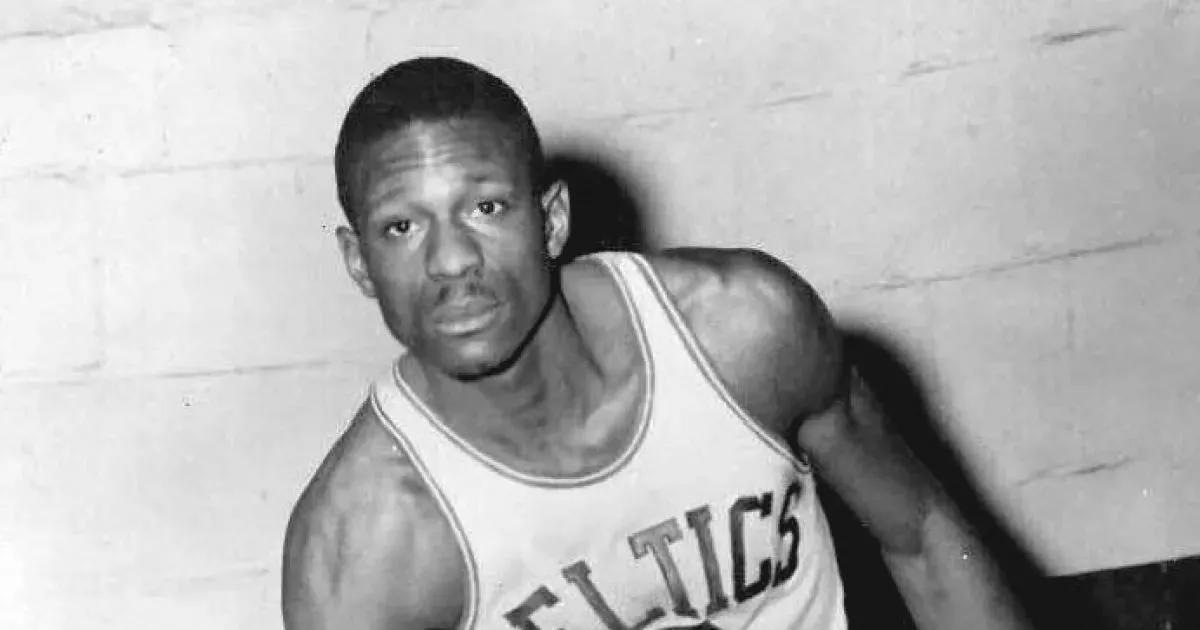Bill Russell was a dominant American professional basketball player, primarily a center for the Boston Celtics (1956-1969). He anchored the Celtics dynasty, leading them to an unprecedented 11 NBA championships in 13 years. Renowned for his exceptional defense, rebounding, and shot-blocking skills, Russell is regarded as one of the greatest basketball players ever.
February 12, 1934: Bill Russell's Birth
On February 12, 1934, William Felton Russell was born. He later became a professional basketball player for the Boston Celtics.
1945: NCAA Prohibited Goaltending
In 1945, the NCAA prohibited goaltending in response to George Mikan's play.
1946: Beginning play in the BAA season
In 1946, the Celtics began playing in the BAA season. The team's second-best record since beginning play guaranteed Russell his first NBA playoffs appearance.
1950: Celtics Make Playoffs
The 1969-70 NBA season was the first time since 1950 that the Celtics did not make the playoffs.
1952: Graduation from McClymonds
In 1952, Bill Russell graduated from McClymonds High School.
1952: Started College at USF
In 1952, Bill Russell started college at the University of San Francisco (USF).
1952: USF becomes part of WCC
In 1952, USF became a part of West Coast Conference (WCC).
December 1, 1953: Varsity Debut at USF
On December 1, 1953, Bill Russell made his varsity debut for USF's basketball team.
1954: First Major College Team to Start Three African-American Players
In 1954, USF became the first major college basketball program to start three African-American players: K. C. Jones, Hal Perry, and Bill Russell.
1954: Racism at the All-College Tournament
In 1954, during the All-College Tournament in Oklahoma City, Bill Russell and his black teammates faced racist discrimination when hotels refused them admission. The team protested by staying in a closed college dorm, which strengthened their bond.
1955: NCAA Championship and Most Outstanding Player Award
In 1955, Bill Russell led USF to an NCAA championship and was named the NCAA Tournament Most Outstanding Player.
1955: Celtics' Worst Record Since 1956
In the 1968–69 NBA season, the Celtics 48–34 record was the team's worst since the 1955–56 NBA season
December 22, 1956: First Celtics Game
On December 22, 1956, Bill Russell played his first game for the Boston Celtics against the St. Louis Hawks, immediately making an impact with his defensive skills.
1956: Played with US Olympic team
Bill Russell wore number 6 for the 1956 U.S. Olympic team.
1956: Start of NBA Career
In 1956, Bill Russell began his NBA career, playing center for the Boston Celtics.
1956: Declined Harlem Globetrotters Offer
In 1956, Bill Russell declined an offer to join the Harlem Globetrotters due to racial prejudice from the owner, Abe Saperstein.
1956: Second NCAA Championship
In 1956, Bill Russell led USF to their second consecutive NCAA championship.
1956: Second NCAA Championship and Olympics
In 1956, Bill Russell led the San Francisco Dons to a second consecutive NCAA championship and was named NCAA Tournament Most Outstanding Player. He also captained the gold medal-winning U.S. national basketball team at the Summer Olympics that year.
1956: Russell marries Rose Swisher
In 1956, Bill Russell married his college sweetheart Rose Swisher.
1956: 1956 NBA season
In 1956, Bill Russell played 48 games, averaging 14.7 points per game and a league-high 19.6 rebounds per game.
1956: Russell's Rookie Contract
In 1956, Bill Russell signed a rookie contract worth $24,000 with the Celtics, which was only slightly less than top earner Bob Cousy's salary.
1956: Drafted and Traded to the Celtics
In 1956, Bill Russell was drafted by the St. Louis Hawks and then traded to the Boston Celtics.
1956: Track and Field Accomplishments
In 1956, Bill Russell was ranked among the top high-jumpers in the world, won high jump titles at multiple meets, and tied with Charlie Dumas, who later won gold at the Summer Olympics. He also chose basketball over the Olympics that year.
1956: NCAA championship and Olympic gold medal
In 1956, Bill Russell won the NCAA championship with USF and an Olympic gold medal, marking a successful year.
1956: Captain of U.S. Olympic Basketball Team
In 1956, before his NBA rookie year, Bill Russell captained the U.S. men's Olympic basketball team at the Summer Olympics in Melbourne, Australia, overcoming challenges to participate.
January 1, 1957: Warriors-Celtics Game Controversy
After the Warriors-Celtics game on January 1, 1957, Philadelphia Warriors coach Eddie Gottlieb criticized Russell's defense, leading to a dispute with Celtics coach Auerbach.
November 16, 1957: NBA Record: Rebounds in One Half
On November 16, 1957, Bill Russell set the NBA record for rebounds in one half with 32 against Philadelphia. He still holds the record.
1957: NBA Title with Celtics
In 1957, Bill Russell won the NBA title with the Celtics, his first NBA championship.
1957: Celtics win the 1957 NBA Championship
In 1957, the Celtics secured their first NBA championship by defeating the St. Louis Hawks in a highly competitive Game 7 of the NBA Finals. Russell's defensive efforts, including the famous "Coleman Play", and Heinsohn's scoring prowess were instrumental in the victory. Auerbach was also fined for punching his colleague Ben Kerner.
1957: First NBA Championship
In 1957, with Russell as the starting center, the Boston Celtics won their first NBA championship.
1957: 1957-58 NBA Season
In the 1957-58 NBA season, the Celtics won fourteen straight games, and Russell averaged 16.6 points per game and a league-record average of 22.7 rebounds per game. He was voted the NBA Most Valuable Player.
1958: Racial Discrimination During NBA All-Stars Tour
During the 1958 NBA All-Stars tour, Bill Russell and his black teammates faced racial discrimination when white hotel owners in segregated North Carolina denied them rooms.
1958: Celtics Lose NBA Finals
In 1958, Bill Russell was injured when the Celtics lost the NBA Finals.
1958: Russell selected to All-NBA Second Team
In 1958, Bill Russell was selected to the All-NBA Second Team.
1958: 1958-59 NBA season
In the 1958-59 NBA season, Bill Russell averaged 16.7 points per game and 23.0 rebounds per game.
November 7, 1959: Russell vs. Chamberlain: "The Big Collision"
On November 7, 1959, Bill Russell's Celtics hosted Wilt Chamberlain's Warriors in a highly anticipated matchup dubbed "The Big Collision." While Chamberlain outscored Russell, the Celtics won the game, marking the beginning of a great basketball rivalry.
1959: Start of Eight Consecutive Championships
From 1959 to 1966, with Bill Russell playing a central role, the Celtics won an NBA record eight consecutive championships.
1959: NBA Finals Rebound Record
In 1959, Bill Russell achieved the NBA Finals record for highest rebound per game average at 29.5.
1959: Russell becomes first NBA player to visit Africa
In 1959, Bill Russell became the first NBA player to visit Africa.
1959: Celtics Win the 1959 NBA Championship
In 1959, Bill Russell led the Celtics to capture the NBA title, sweeping the Minneapolis Lakers 4-0.
1959: Russell wins NBA MVP award and selected to All-NBA First Team
In 1959, Bill Russell won his first NBA MVP award and was selected to the All-NBA First Team.
February 5, 1960: Russell's Record-Breaking Rebound Performance
On February 5, 1960, Bill Russell achieved 23 points, 51 rebounds, and 5 assists in a game against the Syracuse Nationals, setting a record for most rebounds in a single game at the time.
March 29, 1960: NBA Finals Record: Most Rebounds
On March 29, 1960, during a game against St. Louis, Bill Russell achieved the NBA Finals single-game record for most rebounds, with 40.
April 9, 1960: Consecutive Games with 20+ Rebounds Start
On April 9, 1960, Bill Russell began a streak of 15 consecutive games with 20 or more rebounds, lasting until April 16, 1963, an NBA record.
November 24, 1960: Chamberlain Breaks Rebound Record; Celtics Win
On November 24, 1960, Wilt Chamberlain grabbed 55 rebounds against Bill Russell, breaking Russell's single-game rebound record. Despite this, Russell led the Celtics to a 132–129 win over the Philadelphia Warriors.
1960: Russell selected to All-NBA Second Team
In 1960, Bill Russell was selected to the All-NBA Second Team.
1960: 1960-61 NBA season
In the 1960-61 NBA season, Bill Russell averaged 16.9 points and 23.9 rebounds per game, leading his team to a regular season mark of 57-22.
1961: Celtics Boycott Exhibition Game
Before the 1961-62 season, Bill Russell and his black Celtics teammates boycotted an exhibition game in Lexington, Kentucky, after being refused service at a local restaurant, leading to controversy and publicity.
1961: Russell wins NBA MVP award
In 1961, Bill Russell won his second NBA MVP award.
1961: Celtics Win 1961 NBA Championship
In 1961, the Celtics defeated the Syracuse Nationals 4-1 in the Eastern Division finals and won the 1961 NBA Finals in five games against the Los Angeles Lakers.
1961: 1961-62 NBA season
In the 1961-62 NBA season, Russell scored a career-high 18.9 points per game, accompanied by 23.6 rebounds per game.
April 18, 1962: NBA Finals Record: Most Rebounds, Quarter
On April 18, 1962, Bill Russell set the NBA Finals record for most rebounds in a quarter with 19 and tied the record for most rebounds in a game with 40, both against Los Angeles.
1962: Cousy campaigns for Ted Kennedy
In 1962, Auerbach had informed his players to not endorse candidates or causes, as it would alienate fans; Cousy campaigned for Ted Kennedy in 1962.
1962: Russell selected to All-NBA Second Team
In 1962, Bill Russell was selected to the All-NBA Second Team.
1962: Celtics become first team to win 60 games
In 1962, the Celtics became the first team to win 60 games in a season. Russell was voted as the league's MVP.
1962: 1962 NBA Finals
In 1962, the Celtics faced the Los Angeles Lakers in the NBA Finals, splitting the first six games. In Game 6, Russell recorded his first career triple-double and in Game 7, Russell finished with 30 points and 40 rebounds to win the series in overtime after a missed shot by the Lakers at the end of regulation.
January 31, 1963: Celtics visit White House without Russell
On January 31, 1963, before a game against the Cincinnati Royals in College Park, Maryland, the Celtics visited the White House, but Bill Russell overslept and missed meeting President John F. Kennedy because he did not know President Kennedy would be meeting them.
February 10, 1963: Russell Records First Regular Season Triple-Double
On February 10, 1963, Bill Russell recorded his first regular season triple-double, posting 17 points, 19 rebounds, and 10 assists in a win against the New York Knicks.
April 16, 1963: End of Consecutive Games with 20+ Rebounds
On April 16, 1963, Bill Russell's NBA record streak of 15 consecutive games with 20 or more rebounds came to an end, having started on April 9, 1960.
1963: Praise for George Powles
In 1963, Bill Russell expressed his deep admiration for George Powles in a Sports Illustrated article, stating he owed Powles an unquantifiable debt.
1963: Russell wins NBA MVP award and selected to All-NBA First Team
In 1963, Bill Russell won another NBA MVP award and was selected to the All-NBA First Team.
1963: 1963-64 NBA Season
In the 1963-64 NBA season, the Celtics posted a league-best 58–22 record in the regular season. Russell scored 15.0 points per game and grabbed a career-high 24.7 rebounds per game, leading the NBA in rebounds.
1964: Russell selected to All-NBA Second Team
In 1964, Bill Russell was selected to the All-NBA Second Team.
1964: 1964-65 NBA Season
In the 1964-65 NBA season, the Celtics won a league-record 62 games.
March 11, 1965: Russell Grabs 49 Rebounds in a Game
On March 11, 1965, Bill Russell had 49 rebounds in a 112-100 win over the Detroit Pistons, tying for the third-most in a single game in NBA history.
1965: Russell wins NBA MVP award and selected to All-NBA First Team
In 1965, Bill Russell won his fifth NBA MVP award and was selected to the All-NBA First Team.
1965: Russell Demands Higher Salary
In 1965, after Wilt Chamberlain became the first NBA player to earn $100,000, Bill Russell demanded and received a $100,001 salary from the Celtics.
1965: 1965 NBA Playoffs
In 1965, during the Eastern Division finals against the Philadelphia 76ers, Bill Russell held Wilt Chamberlain to limited scoring in Game 3 and contributed significantly in Game 5 with 12 points, 28 rebounds, 7 assists, 10 blocks, and 6 steals. Blocks and steals became officially recorded statistics in the 1973–74 NBA season.
April 16, 1966: Russell Agrees to Become Celtics Head Coach
On April 16, 1966, Bill Russell agreed to become the head coach of the Boston Celtics. Two days later, a public announcement was made, making Russell the first black head coach in NBA history.
1966: Named Celtics Head Coach
In 1966, Bill Russell became the head coach of the Boston Celtics. He addressed concerns about racial prejudice by emphasizing respect for a player's ability, period. Russell's negative experiences with racial bigotry led to a strained relationship with fans and journalists.
1966: Russell Gets a Shoe Deal
In 1966, Bill Russell had a shoe designed by Bristol Manufacturing Corporation, called the Bill Russell Professional Basketball Shoe.

1966: Russell selected to All-NBA Second Team
In 1966, Bill Russell was selected to the All-NBA Second Team.
1966: Celtics Win the 1966 NBA Championship
In 1966, The Celtics won their eighth consecutive title after defeating the Los Angeles Lakers in Game 7 of the NBA finals.
1966: The New York Times describes Russell's characteristics
In 1966, The New York Times wrote about Bill Russell's main characteristics, including pride, intelligence, humor, and dignity.
1966: End of Eight Consecutive Championships
In 1966, the Celtics concluded their run of eight consecutive NBA championships.
1966: Russell's Memoir "Go Up for Glory"
In his 1966 memoir "Go Up for Glory", Bill Russell wrote about the racial discrimination he faced during the 1958 NBA All-Stars tour.
1967: Russell at the Cleveland Summit
In 1967, Bill Russell participated in the Cleveland Summit, supporting Muhammad Ali's decision to refuse being drafted into the military.
1967: NCAA Banned the Dunk Shot
In 1967, the NCAA banned the dunk shot due to Lew Alcindor, although this rule was later repealed.
1967: 76ers Beat Celtics in Playoffs
In 1967, the Philadelphia 76ers defeated the Celtics 4-1 in the Eastern Division finals of the NBA playoffs, ending Boston's championship streak. The Sixers' offense overwhelmed the Celtics' defense in Game 5, with Russell acknowledging the loss by congratulating Chamberlain.
1967: Russell's Season Performance
In the 1967-68 NBA season, Russell averaged 12.5 points and 18.6 rebounds per game.
1968: Personal and Professional Struggles
During the 1968-69 NBA season, Russell was affected by the assassination of Robert F. Kennedy, the Vietnam War, and marital problems, leading to exhaustion and a decline in his performance.
1968: Celtics Win 1968 NBA Finals
In 1968, Bill Russell led the Boston Celtics to a 4-2 victory over the Los Angeles Lakers in the NBA Finals, securing his tenth title in twelve years. Russell was named Sports Illustrated's Sportsman of the Year for his efforts.
1968: Russell named "Sportsman of the Year"
In 1968, Bill Russell was named "Sportsman of the Year" by Sports Illustrated.
1968: Dorothy Anstett is crowned Miss USA
In 1968, Dorothy Anstett, who would later marry Bill Russell, was crowned Miss USA.
1968: Celtics Overcome 3-1 Deficit to Beat 76ers
In the 1968 NBA playoffs, the Celtics rallied from a 3-1 deficit to defeat the Philadelphia 76ers in the Eastern Division finals after Martin Luther King Jr.'s assassination, marking the first time in NBA history that a team lost a series after leading 3-1.
1969: Feud with Chamberlain
After Game 7 of the 1969 NBA Finals, Bill Russell and Wilt Chamberlain's close friendship ended when Russell was quoted describing Chamberlain as a malingerer, leading to a 20-year estrangement.
1969: Russell's Last Championship and Retirement
In 1969, Bill Russell helped the Celtics win another NBA championship and then retired from playing and coaching.
1969: Russell Retires and Cuts Ties with Celtics
In 1969, Bill Russell retired from the Celtics and severed all ties with the team, surprising Red Auerbach and the organization. He sold his retirement story to Sports Illustrated for $10,000 and pursued a career in television and movies.
1969: Russell selected to NBA All-Defensive First Team
In 1969, during his last season, Bill Russell was selected to the NBA All-Defensive First Team, the inaugural year for the selection of All-Defensive Teams.
1969: Russell Struggles Through Season
In the 1968-69 NBA season, Russell coped with exhaustion and personal issues, leading to a decline in his performance and the Celtics entering the 1969 NBA playoffs as the fourth-seeded team in the East.
1969: Celtics Win 1969 NBA Finals
In the 1969 NBA Finals, Russell led the Celtics to an upset victory over the Los Angeles Lakers despite trailing in the series. His strategic adjustments and motivational tactics helped secure the championship.
1970: Russell makes NBA 25th Anniversary Team
In 1970, Bill Russell was named to the NBA 25th Anniversary Team.
1970: Russell named "Athlete of the Decade"
In 1970, The Sporting News named Bill Russell the "Athlete of the Decade".
1970: Celtics Fail to Make Playoffs
In the 1969-70 NBA season, the Celtics failed to make the playoffs for the first time since 1950, due to a lack of an All-Star center following Russell's retirement.
1971: Joins NBA on ABC
In 1971, Bill Russell became a commentator for the NBA on ABC's "Game of the Week."
1971: Selection into the NBA 25th Anniversary Team
In 1971, Bill Russell was selected into the NBA 25th Anniversary Team.
March 12, 1972: Jersey retired by Celtics
On March 12, 1972, the Boston Celtics retired Bill Russell's jersey No. 6, which he also wore at USF and for the 1956 U.S. Olympic team.
1972: Refusal to attend jersey retirement ceremony
In 1972, Bill Russell refused to attend the ceremony when his jersey No. 6 was retired, reflecting his strained relationship with Boston at the time.
1973: Russell divorces Rose Swisher
In 1973, Bill Russell and Rose Swisher divorced.
1973: Head coach of Seattle SuperSonics
In 1973, Bill Russell became the head coach and general manager of the Seattle SuperSonics.
1973: Head Coach and General Manager for Seattle SuperSonics
In 1973, Bill Russell began his tenure as head coach and general manager of the Seattle SuperSonics.
1973: Blocks and Steals become officially recorded statistics
In the 1973-74 NBA season, blocks and steals became officially recorded statistics.
1975: Refusal to attend Hall of Fame induction
In 1975, Bill Russell declined to attend his induction into the Hall of Fame, due to lingering negative feelings towards Boston.
1975: Inducted into Naismith Memorial Basketball Hall of Fame
In 1975, Bill Russell was inducted into the Naismith Memorial Basketball Hall of Fame, though he did not attend the ceremony.
1977: End of Tenure with Seattle SuperSonics
In 1977, Bill Russell concluded his time as head coach and general manager of the Seattle SuperSonics.
1977: Russell marries Dorothy Anstett
In 1977, Bill Russell married Dorothy Anstett, Miss USA of 1968.
1977: Leaves Seattle SuperSonics
In 1977, after leading the SuperSonics to their first playoff appearance but struggling to implement his coaching style, Bill Russell departed with a 162-166 record.
1978: Fosbury Flop Dominance
After 1978, all high jump world records have been set using the Fosbury Flop.
November 3, 1979: Hosts Saturday Night Live
On November 3, 1979, Bill Russell hosted Saturday Night Live, participating in various sports-related sketches.
1979: 1979-80 NBA Season
In the 1979-80 NBA season, players voted for the MVP award.
1980: Russell divorces Dorothy Anstett
In 1980, Bill Russell and Dorothy Anstett divorced.
1980: Russell declared "Greatest Player in the History of the NBA"
In 1980, Bill Russell was declared "Greatest Player in the History of the NBA" by the Professional Basketball Writers Association of America.
1980: Russell makes NBA 35th Anniversary Team
In 1980, Bill Russell was named to the NBA 35th Anniversary Team.
1980: Selection into the NBA 35th Anniversary Team
In 1980, Bill Russell was selected into the NBA 35th Anniversary Team.
1985: Tutoring Benoit Benjamin
In 1985, Bill Russell tutored Benoit Benjamin, a top draft pick, at the request of former teammate and Clippers head coach Don Chaney.
March 7, 1986: Appearance on Miami Vice
On March 7, 1986, Bill Russell appeared in the Miami Vice episode "The Fix" as Judge Roger Ferguson.
1987: Coaching the Sacramento Kings
In 1987, Bill Russell started coaching the Sacramento Kings.
1988: End of Coaching Career with Sacramento Kings
In 1988, Bill Russell ended his coaching career with the Sacramento Kings.
1995: Celtics move to FleetCenter
In 1995, the Celtics relocated from the Boston Garden to the FleetCenter (now TD Garden), prompting a renewed effort to honor Russell.
1996: Russell marries Marilyn Nault
In 1996, Bill Russell married his third wife, Marilyn Nault.
1996: Named One of the 50 Greatest Players in NBA History
In 1996, Bill Russell was named as one of the 50 Greatest Players in NBA History.
1996: Russell makes NBA 50th Anniversary Team
In 1996, Bill Russell was named to the NBA 50th Anniversary Team.
May 6, 1999: Jersey re-retirement ceremony
On May 6, 1999, the Celtics re-retired Bill Russell's jersey in a ceremony at the FleetCenter, attended by notable figures like Wilt Chamberlain, Larry Bird, and Kareem Abdul-Jabbar, where Russell received a standing ovation.
October 1999: Return to Prominence After Chamberlain's Death
Following Wilt Chamberlain's death in October 1999, Bill Russell returned to prominence at the turn of the millennium, stepping back into the public eye.
1999: Russell Ranked No. 18 on ESPN's "50 Greatest Athletes of the 20th Century" List
In 1999, Bill Russell was ranked No. 18 on ESPN's "50 Greatest Athletes of the 20th Century" list.
1999: Russell Delivers Eulogy for Chamberlain
In 1999, following years of reconciliation, Bill Russell delivered a eulogy for Wilt Chamberlain, emphasizing their competition rather than rivalry and their enduring friendship.
2000: Heinsohn comments on Russell's stature
In 2000, Tom Heinsohn described Bill Russell's stature and his uneasy relationship with Boston.
2001: Publication of 'Russell Rules'
In 2001, Bill Russell, along with David Falkner, published "Russell Rules: 11 Lessons on Leadership from the Twentieth Century's Greatest Winner", sharing insights on leadership.
2005: Russell's Perception of Insults
According to sportswriter Taylor in a 2005 book, Bill Russell was extremely sensitive to racial prejudice and often perceived insults even if others did not.
January 2006: Mediates Shaq-Kobe Feud
In January 2006, Bill Russell successfully convinced Miami Heat's Shaquille O'Neal to reconcile with Kobe Bryant, ending the Shaq-Kobe feud.
November 17, 2006: Inducted into National Collegiate Basketball Hall of Fame
On November 17, Bill Russell was inducted into the founding class of the National Collegiate Basketball Hall of Fame.
2006: Induction into National Collegiate Basketball Hall of Fame
In 2006, Bill Russell was one of the founding inductees into the National Collegiate Basketball Hall of Fame.
May 20, 2007: Honorary Doctorate from Suffolk University
On May 20, 2007, Bill Russell received an honorary doctorate from Suffolk University and served as commencement speaker.
June 7, 2007: Honorary Degree from Harvard University
On June 7, 2007, Bill Russell was awarded an honorary degree from Harvard University.
June 18, 2007: Inducted into FIBA Hall of Fame
On June 18, 2007, Bill Russell was inducted as a member of the founding class of the FIBA Hall of Fame.
2007: Enshrinement in FIBA Hall of Fame
In 2007, Bill Russell was enshrined in the FIBA Hall of Fame.
2007: Russell voted third best center of all time by ESPN
In 2007, Bill Russell was voted the third best center of all time by ESPN behind Abdul-Jabbar and Chamberlain.
December 2008: We Are Boston Leadership Award
In December 2008, Bill Russell was honored with the We Are Boston Leadership Award, recognizing his contributions and impact.
2008: Golden Plate Award
In 2008, Bill Russell received the Golden Plate Award of the Academy of Achievement, recognizing his significant contributions.
January 2009: Death of Russell's third wife, Marilyn Nault
In January 2009, Bill Russell's third wife, Marilyn Nault, passed away. At the time of his death, Russell was married to Jeannine Russell.
February 14, 2009: NBA Finals MVP Award Renamed
On February 14, 2009, NBA Commissioner David Stern announced that the NBA Finals Most Valuable Player Award would be renamed the Bill Russell NBA Finals Most Valuable Player Award in his honor.
June 14, 2009: Honorary Degree from Dartmouth College
On June 14, 2009, Bill Russell received an honorary degree from Dartmouth College, adding to his collection of academic honors.
2009: NBA Finals MVP award named after Russell
During the NBA All-Star Weekend on February 14, 2009, NBA Commissioner David Stern announced that the NBA Finals MVP award would be named after Bill Russell.
2009: Russell praised as smartest player
In 2009, Bill Bradley wrote in The New York Times Book Review that Bill Russell "was the smartest player ever to play the game [of basketball]".
2009: Russell shares his paternal grandfather's motto
In 2009, Bill Russell wrote about his paternal grandfather's motto, "A man has to draw a line inside himself that he won't allow any man to cross," and how it influenced him.
2009: Russell named third best player of all-time by Slam
In 2009, Slam named Bill Russell the third best player of all-time behind Jordan and Chamberlain.
2009: NBA Finals MVP Award Renamed in His Honor
In 2009, the NBA renamed the NBA Finals MVP Award in honor of Bill Russell.
2010: Russell named a recipient of the Presidential Medal of Freedom
In 2010, Bill Russell was named as a recipient of the Presidential Medal of Freedom.
2010: Recalling Celtics racial progress
In 2010, Russell recalled the Boston Celtics' racial progress during the 1950s and 1960s, emphasizing the organization's accomplishments and his personal experiences.
2011: Awarded the Presidential Medal of Freedom
In 2011, Barack Obama awarded Bill Russell the Presidential Medal of Freedom for his achievements in basketball and contributions to the civil rights movement.
October 16, 2013: Russell arrested for bringing handgun to airport
On October 16, 2013, Bill Russell was arrested for bringing his registered, loaded .38-caliber Smith & Wesson handgun to the Seattle–Tacoma International Airport and was issued a citation.
November 1, 2013: Statue of Russell unveiled on City Hall Plaza
On November 1, 2013, a statue of Bill Russell was unveiled on City Hall Plaza in Boston, with Russell in attendance, depicting him in-game, surrounded by 11 plinths representing his 11 championships.
2015: Statues of children added to Russell statue
In 2015, two statues of children were added to the Bill Russell statue, honoring Russell's commitment to working with children.
June 15, 2017: Russell announced as inaugural recipient of NBA Lifetime Achievement Award
On June 15, 2017, Bill Russell was announced as the inaugural recipient of the NBA Lifetime Achievement Award.
September 26, 2017: Takes a Knee in Solidarity
On September 26, 2017, Bill Russell showed his support for NFL players protesting social injustice by taking a knee in a photograph posted to Twitter, wearing his Presidential Medal of Freedom.
November 15, 2019: Acceptance of Hall of Fame ring
On November 15, 2019, Bill Russell accepted his Hall of Fame ring in a private ceremony with his family, marking a shift in his relationship with the honor.
August 2, 2020: WCC adopts the Russell Rule
On August 2, 2020, the West Coast Conference (WCC) became the first NCAA Division I conference to adopt a conference-wide diversity hiring commitment, announcing the Russell Rule, named after Bill Russell.
2020: Russell Ranked No. 4 in ESPN's List of Top 74 NBA Players
In 2020, Bill Russell was ranked No. 4 in ESPN's list of the top 74 NBA players of all time.
October 2021: Russell honored as one of the league's 75 greatest players of all time
In October 2021, Bill Russell was honored as one of the league's 75 greatest players of all time.
2021: Hall of Fame Induction as Coach
In 2021, Bill Russell attended his induction into the Basketball Hall of Fame as a coach, marking a unique recognition of his coaching career.
2021: Russell makes NBA 75th Anniversary Team
In 2021, Bill Russell was named to the NBA 75th Anniversary Team.
2021: Selection to the NBA 75th Anniversary Team and Second Hall of Fame Induction
In 2021, Bill Russell was selected to the NBA 75th Anniversary Team and was inducted into the Naismith Memorial Basketball Hall of Fame a second time for his coaching career.
July 31, 2022: Bill Russell's Death
On July 31, 2022, William Felton Russell passed away. He was a celebrated figure in basketball history.
August 11, 2022: Russell's No. 6 jersey retired throughout the NBA
On August 11, 2022, it was announced that Bill Russell's No. 6 jersey would be retired throughout the National Basketball Association, the first time a jersey had been retired league-wide in NBA history.
2022: Russell Ranked No. 6 in ESPN's NBA 75th Anniversary Team List
In 2022, Bill Russell was ranked No. 6 in ESPN's NBA 75th Anniversary Team list, and No. 4 in a similar list by The Athletic.
2022: NBA Retired Russell's #6 Jersey League-Wide
Shortly after his death in 2022, the NBA retired Bill Russell's #6 jersey league-wide, an honor only given to a select few.
October 2024: Boston to rename bridge in Russell's honor
In October 2024, Boston Mayor Michelle Wu and other officials announced that the city would rename the new North Washington Street Bridge in honor of Bill Russell. The bridge was under construction as the replacement of a bridge known locally as the Charlestown Bridge.
2024: Franchise Leader in Rebounds
As of 2024, Bill Russell leads the Celtics franchise in career rebounds, minutes per game (42.3), and rebounds per game, solidifying his place in Celtics history.
2024: Value of Russell's 1956 Rookie Contract in 2024
In 2024, Bill Russell's 1956 rookie contract was worth $277,572.
Mentioned in this timeline

Basketball is a team sport played on a rectangular court...

Michael Jordan widely considered one of basketball's greatest players significantly...
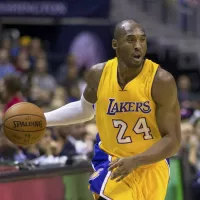
Kobe Bryant a legendary shooting guard dedicated his -year NBA...

Barack Obama the th U S President - was the...

Martin Luther King Jr was a pivotal leader in the...
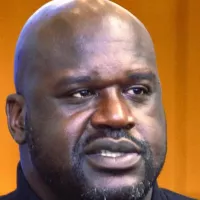
Shaquille O'Neal also known as Shaq is a retired American...
Trending

41 minutes ago Storm Causes Power Outages Across Central Coast and SLO County, Bringing Down Trees
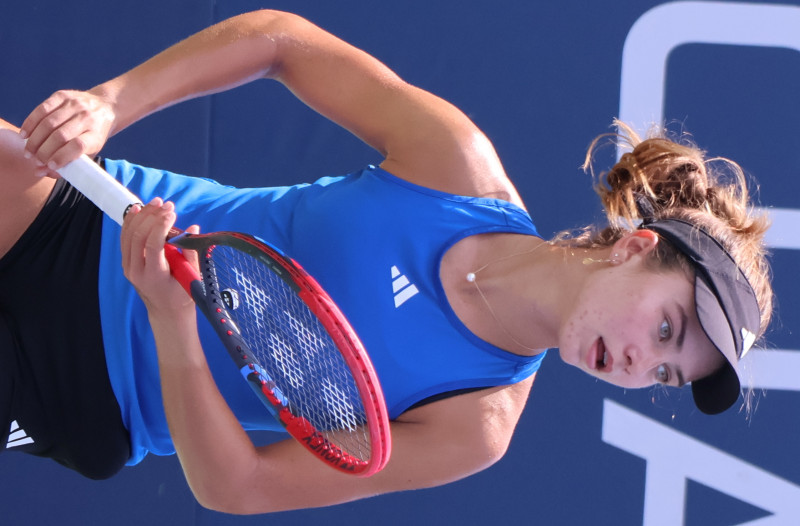
2 hours ago Iva Jovic triumphs over Rakhimova in Dubai, reveals Pegula observation.
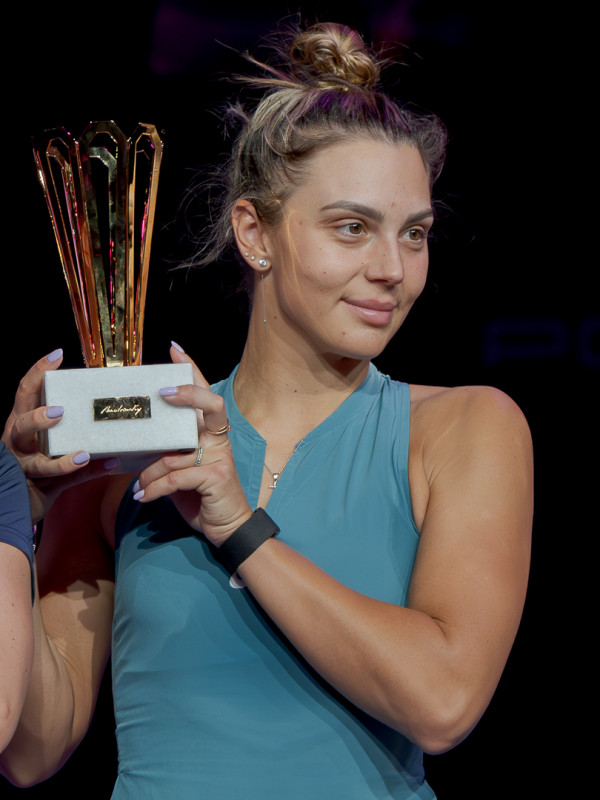
2 hours ago Andreeva vs. Cristian: WTA Dubai 2026 Prediction, Odds, and Match Preview.

2 hours ago Mirra Andreeva embraces attention, aims Dubai title defense, draws inspiration from LeBron James.

3 hours ago Severe Thunderstorm Warning Issued for Central California; Funnel Clouds Possible, Gusty Showers Expected

3 hours ago Iva Jovic Observed Jessica Pegula; Jovic Wins in Dubai First Round.
Popular

Jesse Jackson is an American civil rights activist politician and...
Randall Adam Fine is an American politician a Republican who...

Pam Bondi is an American attorney lobbyist and politician currently...

Barack Obama the th U S President - was the...

Kid Rock born Robert James Ritchie is an American musician...

XXXTentacion born Jahseh Dwayne Ricardo Onfroy was a controversial yet...
